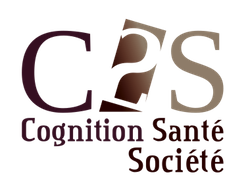Role of Impulsivity and Emotion Dysregulation Dimensions on Core Characteristics of Binge Drinking among University Students
Résumé
Binge drinking refers to a pattern of alcohol consumption that leads to rapid intoxication followed by withdrawal and abstinence periods. This study aimed to investigate the potential differential contributions of impulsivity and emotion regulation difficulties to core characteristics of binge drinking (consumption speed, frequency of binge drinking episodes, and the ratio of binge drinking episodes) among a sample of non-abstainers college students. One thousand and five hundred fifty-five participants (17-25 years old) completed the UPPS-P Impulsive behavior scale, the Difficulties in Emotion Regulation Scale (DERS) and measures related to alcohol consumption patterns and affects by means of an online survey. Multiple regression analyses showed that UPPS-P sensation seeking, lack of premeditation, positive, and negative urgency dimensions were significantly associated with binge drinking core characteristics. More specifically, lack of premeditation, and sensation seeking dimensions were associated with speed of drinking, frequency of binge drinking epiosodes, and the ratio of binge drinking episodes. Positive urgency was associated with speed of drinking, and the ratio of binge drinking episodes while negative urgency was negatively associated with speed of drinking. DERS impulse dimension was associated with speed of drinking, DERS awareness dimension was negatively associated with the frequency of binge drinking episodes, and DERS goals dimension was significantly associated with the ratio of binge drinking episodes. Furthermore, patterns of drinking were independently associated with sex, depression and anxiety scores. These findings may help to plan and develop interventions aimed at addressing binge drinking in young adults by targeting impulsivity and emotion dysregulation.
| Origine | Fichiers éditeurs autorisés sur une archive ouverte |
|---|---|
| licence |



